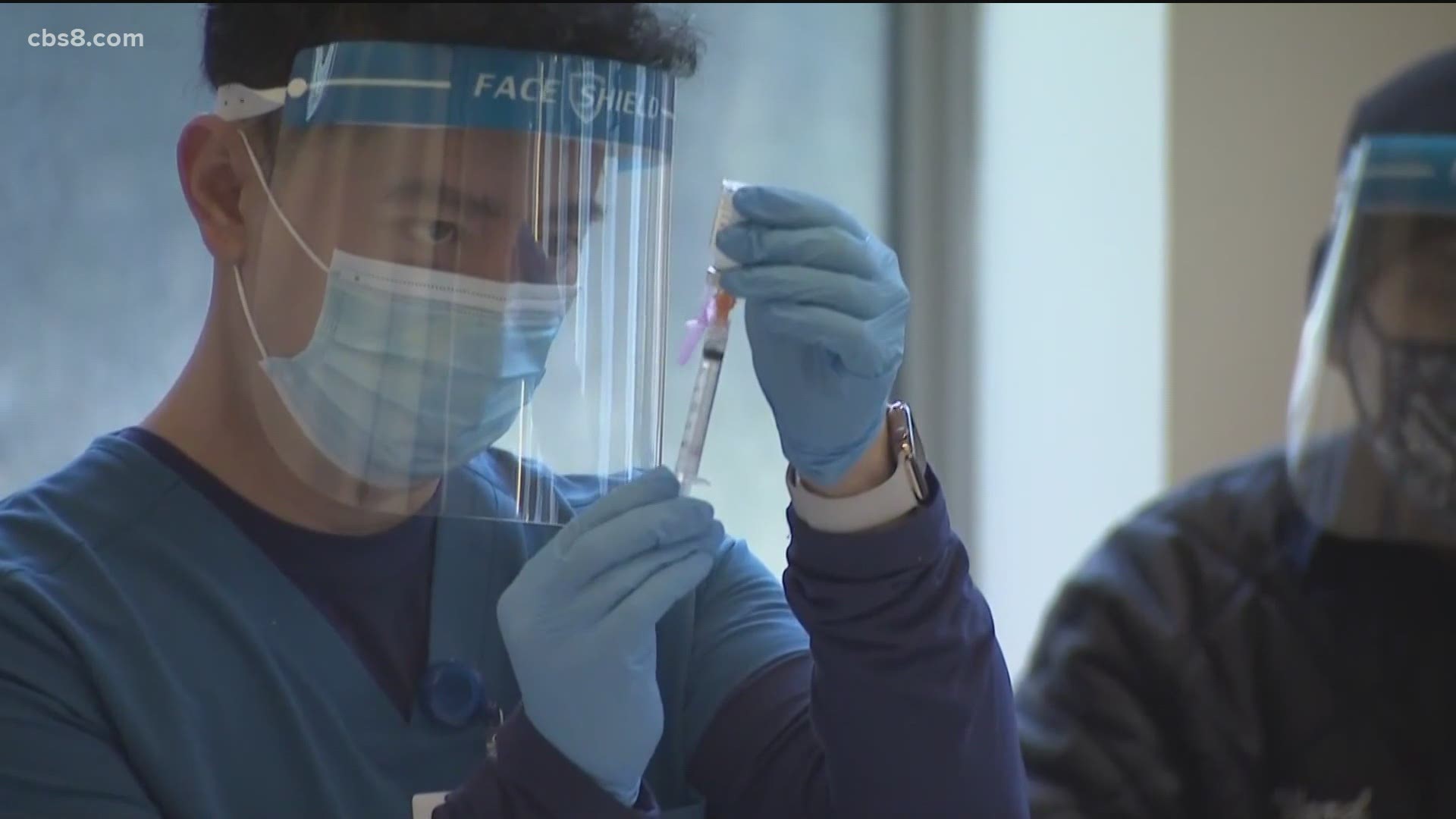IRVINE, Calif. — UC Irvine scientists are working on developing a vaccine that would attack all strains of COVID-19 as well as a potential breakthrough that would solve many of the problems related to distributing the medicine, a UCI professor on the project said Friday. Lbachir BenMohamed, a UCI School of Medicine professor, said his team is developing what they envision will be a vaccine that could work on all strains in the SARS-CoV-2 family.
The UCI vaccine would be a "backup" to the vaccines used now and anticipated to be approved shortly, BenMohamed said. "Our vaccine is not only focused on spike protein," to provoke an immune response, like Pfizer's and Moderna's, the professor said. There are two dozen other proteins that can prompt an immune response, he said.
"It is focused on a lot of other proteins that are expressed by SARS-CoV-2, which is the virus that causes COVID-19," he said.
The study is now in pre-clinical trials with mice, and will generate multiple vaccines.
Dr. BenMohamed and his team will then pick the one most effective on Coronavirus, with small-scale human trials beginning as soon as this summer. Those would then expand to larger-scale human trials later this year.
"Our vaccine is designed to protect from common cold coronavirus... and to protect from the viruses not here yet," Dr. BenMohamed said.
"We can not wait for the next outbreak, and then start developing a vaccine, like we did for COVID-19," he told News 8 in an interview on Friday. "This will protect not only against SARs-COV-2 but it could also protect against the disease that is not even HERE yet."
There are new strains in Japan and South Africa with a study this week indicating that the vaccines we have available might not be as potent on. Southern California has the more highly contagious strain from the U.K.
Dr. BenMohamed noted that the study on the South African strain has not been peer reviewed "so we don't really know" how the vaccines would work on it. The Japan variant is a mix of the U.K. and South African strains, he said.
"The good news is it looks like the vaccine is efficient against the U.K. variant," Dr. BenMohamed said.
The issues with distributing the Moderna and Pfizer vaccines as outlined by the Biden administration on Thursday could be solved by another project the scientists are working on, Dr. BenMohamed said.
The scientists are working to see if a vaccine can be transmitted with patch technology that is similar to the way the nicotine patch works for smokers trying to quit the habit, he said.
"Next week we'll know if that delivery system will induce the immune system," Dr. BenMohamed said.
If so, "we could mail the doses of vaccine... you put it on your arm and then you're vaccinated," Dr. BenMohamed said. "Three weeks after that we'll send you the second dose."
This technology will be especially helpful in distributing vaccines in under-developed countries or remote regions of the world, Dr. BenMohamed said.
Distributing a vaccine costs six times more than making the medicine, he said.
Dr. BenMohamed said he believes the Biden administration will be able to meet its goals of 100 million vaccinations in 100 days.
"Fortunately, we have a lot of infrastructure in place" to do it, he said. "This is the first time we're trying to vaccinate 100 million within 100 days. But they have no doubt we're going to overcome all those issues and get all those vaccines to everybody."
But, if UCI's patch project works "it will solve a lot of problems," he said.
"That is going to be a game-changer," he told News 8. "If these patches work, then we are done. We could vaccinated hundreds of millions of people in a matter of months."

